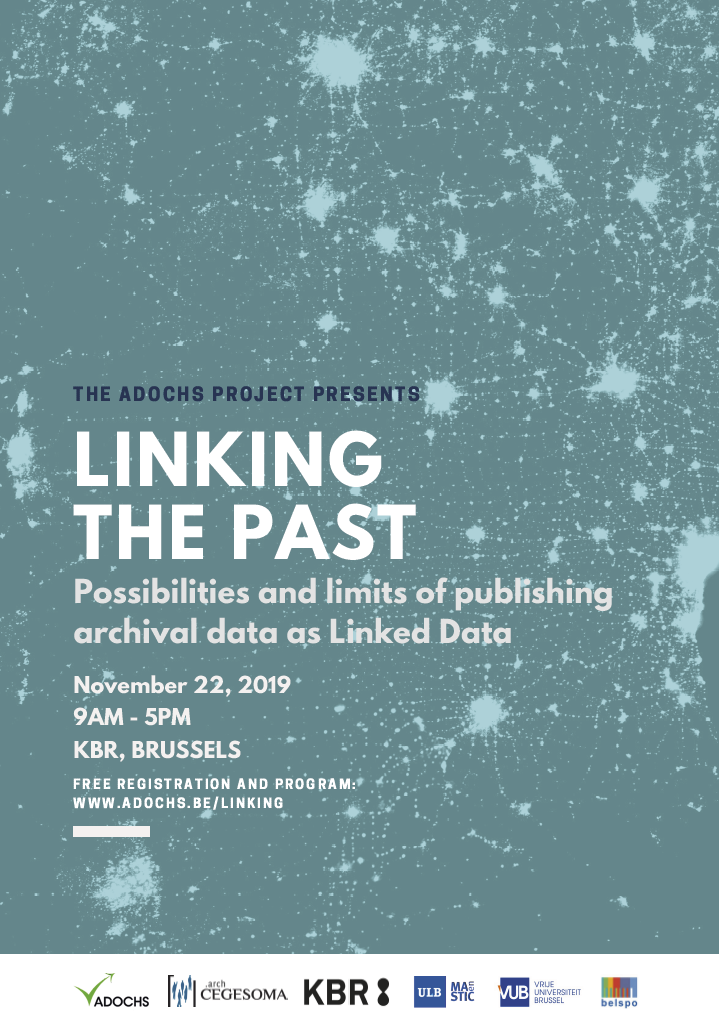Kommentiert von: Tabea Hartig Durch eine klare Bildsprache und Symbolik vermittelt die Bilderbuch...
Workshopbericht: DARIAH-DE Workshop Digital tools and methods for historical research, 25.09.19, Mainz
Am 25. September 2019 fand am Leibniz-Institut für Europäische Geschichte (IEG) in Mainz der DARIAH-DE Workshop Digital tools and methods for historical research statt.

Leibniz-Institut für Europäische Geschichte (IEG) in Mainz, Bild: Anna Aschauer
Hierzu waren Studierende und Forschende der Geschichtswissenschaften eingeladen. Die rund 25 TeilnehmerInnen haben Einblicke in die Forschungsarbeiten der Vortragenden des IEG erhalten anhand derer ihnen grundlegende Methoden und Möglichkeiten der Digital Humanities demonstriert wurden:
Dr. Jaap Geraerts stellte zu Beginn des Workshoptages die digitale Datenbank AOR (Archaeology of Reading in Early Modern Europe) in der Nutzung vor. In diesem Zusammenhang erklärte er den Anwesenden – zumeist DH-Anfängern – Grundlegendes zu strukturierten Daten und Metadaten. In seinem zweiten Teil verglich Jaap Geraerts die digitalen Sammlungen DARIAH-DE Collection Registry und den Katalog digitaler Editionen der EADH (European Association for Digital Humanities).
[...]
Quelle: https://dhd-blog.org/?p=12422
Ordnung ins Chaos. Digitale Netzwerkanalyse am Beispiel von Galberts von Brügge De multro, traditione, et occisione gloriosi Karoli, comitis Flandriarum: I Einleitung
Lehrstücke: Gesammelte Beiträge von Masterstudierenden der Ludwig-Maxi...
Unforgettable Stones: What is their Secret?
The Suvorov Cross, raised in 1899 in memory of the fallen Russian soldiers crossing the Alps in 1799, remains one of the iconic tourist places.
The post Unforgettable Stones: What is their Secret? appeared first on Public History Weekly.
Quelle: https://public-history-weekly.degruyter.com/7-2019-28/suvorov-cross-russia/
Ein Ausflug in die Seele der norwegischen Landschaft
“Harald Sohlberg – ein norwegischer Landschaftsmaler um 1900” im Museum Wiesbaden ...
Die Probleme eines EU-Austritts à la Brexit wurden bereits 1952 vorausgesehen
Es kann nicht oft genug wiederholt werden, dass beinahe alles, was heutzutage so an Ideen und Problemen in der EU ‚herumschwebt‘, schon vor Jahrzehnten erkannt, gesagt, debattiert worden ist.
Der Beitrag Die Probleme eines EU-Austritts à la Brexit wurden bereits 1952 vorausgesehen erschien zuerst auf Wolfgang Schmale.
Im Gedenken an Manfred Bruns: Der Kampf um gleiche Rechte für Schwule und Lesben
Heute erhielten wir die Nachricht, dass Bundesanwalt a.D. Manfred Bruns im Alter von 85 Jahren verst...
Die Ehe für alle – Eine rechtsgeschichtliche Untersuchung zur Gleichstellung homosexueller Menschen in der Bundesrepublik
von Lennard Gottman Als am 28. Juni 2017 der Bundestag das Gesetz für die Ehe für alle bes...
Gerda Henkel Fellowship in Digital History at GHI Washington & Roy Rosenzweig Center for History and New Media at the George Mason University
With the generous support of the Gerda Henkel Foundation, the German Historical Institute (GHI) and the Roy Rosenzweig Center for History and New Media at the George Mason University (RRCHNM) invite applications from postdoctoral scholars and advanced doctoral students based in Europe for a 12-month fellowship in digital history.
The fellowship will provide a unique opportunity for the recipient to work on his or her research project at RRCHNM, where she/he will be in residence for one year. We welcome applications from scholars who are seeking seed-funding in order to develop a thrilling idea into a new project and/or funding proposal as well as from scholars who wish to pursue fully-fledged research projects. While at the Center, the fellow will also have the opportunity to consult with the Center’s faculty and staff in order to develop the skills needed for his or her project, join teams working on projects in development at RRCHNM, and to sit in on graduate digital history classes at GMU. Depending upon qualifications and visa status, the fellow could teach or co-teach undergraduate courses involving digital history.
Starting at the beginning of the 2020 GMU fall semester, the successful applicant will be in residence at the RRCHNM and will also participate in GHI activities, events, and digital projects. Funding will be provided for a 12-month stay for postdoctoral scholars as well as advanced doctoral students, who are currently affiliated with a European research institution. The monthly stipend will be €3,400 for postdoctoral scholars or €2,000 for doctoral students.
[...]
Quelle: https://dhd-blog.org/?p=12417
